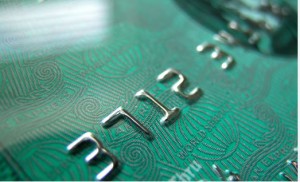Although credit card debt is a relatively new phenomenon, it is the spiritual descendant of consumer debt, which has been around with us forever. Consider the words of the bestselling Napoleon Hill in his book, The Law of Success, which was originally published in 1928 as part of an eight-part series:
[mainbodyad]
It is a terrible thing even to think of going through life like a prisoner in chains, bound down and owned by somebody else on account of debts. The accumulation of debts is a habit. It starts in a small way and grows to enormous proportions slowly, step by step, until finally it takes charge of one’s very soul.
Thousands of young men start their married lives with unnecessary debts hanging over their heads and never manage to get out from under the load. After the novelty of marriage begins to wear off (as it usually does) the married couple begins to feel the embarrassment of want, and this feeling grows until it leads, often-times, to open dissatisfaction with one another, and eventually to the divorce court. … No sacrifice is too great to avoid the misery of debt! … work [your] way out of slavery. – Napoleon Hill
It is interesting that nearly a century later, human nature is still such that Hill’s words ring true. Credit card debt overwhelms people to the point that some even commit suicide over it. But despite all of the high-profile cases of credit card debt disasters, the reality is far more interesting. The truth is, despite the well-documented statistic that the average American family carries $8,000 in credit card debt, Money Central’s Liz Pullian wisely points out that:
- Most Americans actually owe no credit card debt
- Those households that do have credit card debt often carry a balance of $2,000 or less
- Only 1 in 20 households carries the infamous $8,000 in credit card debt or more
How Could the Media Be So Misinformed on Credit Card Debt?
The reason this misinformation exists is because people stupidly take the total outstanding credit card debt in the United States and divide it by the total number of households. But someone like Bill Gates could owe $100 million in an American Express card and the interest he earns on his bond holdings in a single month would wipe out the balance so it is idiotic to attribute that to regular household credit card debt. Furthermore, the statistics didn’t include all households, just those with credit cards! That means that it divided the total debt among a much smaller base than was appropriate.
Pullian’s best point was this:
Consider what would happen if you and 17 of your friends and family were in a room with Bill Gates and Warren Buffett. The average net worth of a person in that room would be north of $4 billion. The fact that everybody else’s personal net worth was just $100,000, or $1 million, or even $10 million, wouldn’t affect the average that much because the big boys are sooooo much wealthier than you.
The bottom line: It’s all nonsense. The average American households does not have $8,000 in credit card debt. Don’t believe it for a moment. Pullian pointed out the following:
- 23.8% of American households have no credit cards at all — no bank cards, no retail cards, nothing.
- Another 31.2% of the households the Fed surveyed paid off their most recent credit card bills in full.
- So together, the households that owed nothing on credit cards equaled 55% of the total.
The particular article is older than I would like but I hope to go pull the Federal Reserve data for myself. I know that household credit card balances have been crashing for years thanks to the recession – I’ve written about it at About.com several times.

Most American households don’t have a credit card debt problem either because they refuse to get a credit card at all or they pay off their balance each month.
But try telling someone who is drowning in credit card debt that most American family’s don’t have the same problem and they will start to attack you because it is in their own self-interest to avoid the cognitive dissonance that information would cause. But that should be good news. If most Americans don’t struggle with credit card debt, it means that you don’t have to, either.
Personally, I’ve eschewed everything except the American Express Plum Card program, which gives my businesses a 3% cash discount for paying the balance in full 10 days after the statement closes. I also use American Express cards personally to get the points. I just despise credit card debt. Carrying a balance is anathema to me. It would drive me nuts.
Years ago, Suze Orman said something brilliant: The very first month you cannot pay off your credit card balance in full, you have a debt problem. It is already out of control. If you live by that mantra, you will never get in trouble save black-swan events like a health crisis. It remains the best credit card advice I’ve ever heard.
[mainbodyad]


